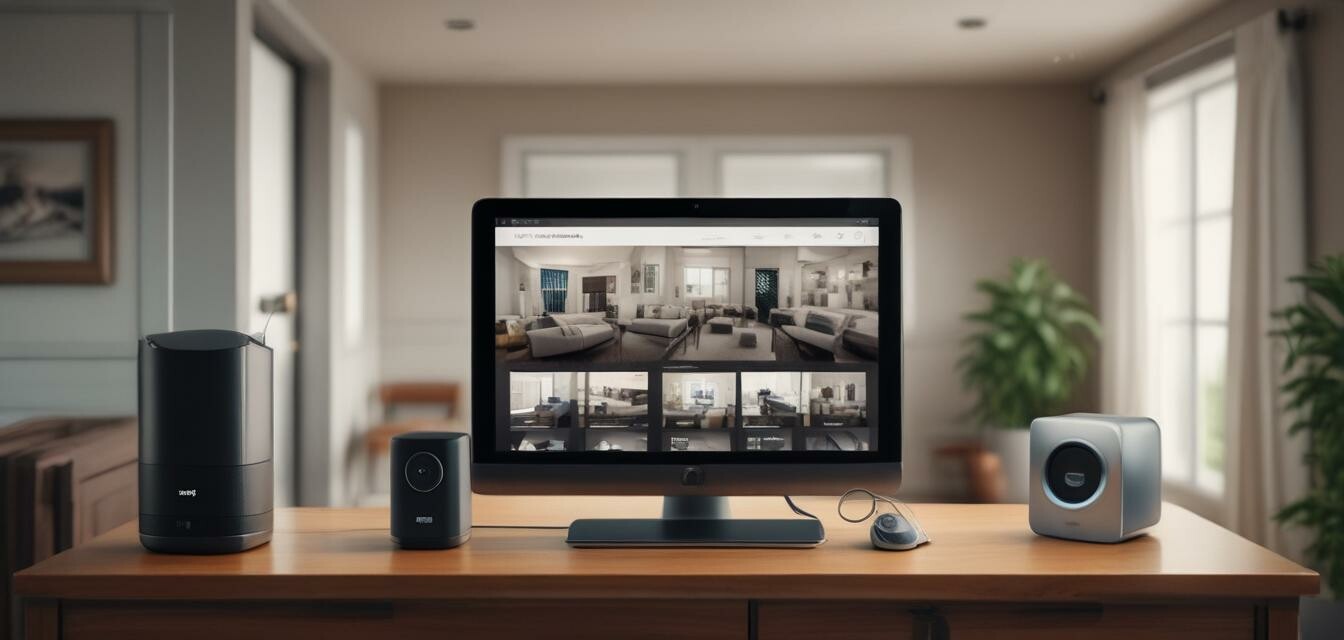
Customizing Your Smart Security Alerts
Key Takeaways
- Learn how to customize alerts for your smart security system.
- Understand the importance of tailored alerts for different scenarios.
- Explore various alert types available in modern smart systems.
- Discover tips for optimizing your alert settings for quicker responses.
- Gain insight on balancing security alert frequency to avoid overload.
In the ever-evolving world of smart home technology, ensuring your home is secure is more critical than ever. One of the essential parts of a smart security system is the alert system—it lets you know when something is amiss in or around your home. However, not all alerts are created equal. Customizing your smart security alerts can significantly enhance your protection and improve your response times during emergencies. This guide will take you through the steps necessary to tailor your alerts to fit your lifestyle and enhance overall safety.
Understanding your smart security alert system
Before diving into how to customize alerts, it’s fundamental to understand the types of alerts available in most smart security systems. Here's a brief overview of common alert types:
| Alert Type | Description |
|---|---|
| Motion Detection Alerts | Notify you when motion is detected in monitored areas. |
| Door/Window Alerts | Alert for any unauthorized openings of doors or windows. |
| Camera Alerts | Provide updates from security cameras during activity. |
| Environmental Alerts | Notify you about smoke, carbon monoxide, or unusual temperature changes. |
Benefits of customizing your alerts
Tailoring your alert preferences can greatly improve your home security. Here are some notable benefits:
- Reduced Alert Fatigue: By only receiving alerts that matter, you’ll pay more attention to actual threats.
- Improved Response Time: Customized alerts allow you to act quickly based on the specific situation.
- Better Energy Management: Adjustments can help manage battery life and performance of your devices.
- Personalized Peace of Mind: A system tailored to your lifestyle can offer assurance and comfort to you and your family.
How to customize your security alerts
Customizing your alerts typically involves accessing your smart security app or user interface. Here’s a quick step-by-step guide:
- Open the security system app on your smartphone or device.
- Locate the “Alerts” or “Notifications” section.
- Select the specific alerts you wish to customize.
- Choose your preferred frequency (immediate, daily summary, weekly summary).
- Adjust alert types based on your lifestyle (e.g., only motion alerts during the day).
- Save changes and test the alerts to ensure they're set up correctly.
Tips for optimizing alert settings
Beginner's Section: Tips for optimizing alert settings
- Prioritize Important Alerts: Focus on crucial alerts and mute those that can be considered false alarms.
- Regularly Review Settings: As your needs change, revisit your alert settings every few months.
- Integrate with Other Devices: Connect alerts with smart home systems like lights and speakers for enhanced responses.
- Use Geofencing: Set up alerts based on your location to avoid unnecessary notifications when you're at home.
Common mistakes to avoid
While customizing alerts can lead to improved security, there are common pitfalls to avoid:
- Ignoring Sensitivity Settings: Make sure motion detectors have the right sensitivity to avoid frequent false alarms.
- Overloading with Alerts: Receiving too many notifications can lead you to ignore genuine threats.
- Failure to Test Changes: Always ensure any changes you make are functioning properly.
Balancing frequency and necessity
Finding the right balance between alert frequency and necessity is crucial. Setting alerts to trigger less often can decrease fatigue while ensuring you remain informed. Here are some strategies for achieving this balance:
| Strategy | Explanation |
|---|---|
| Time-based Settings | Only allow alerts during specific hours when you're likely to respond. |
| Summary Alerts | Set daily or weekly summaries for minor alerts to avoid overload. |
| Prioritizing Alerts | Only enable immediate alerts for significant threats like break-ins. |
Conclusion
Customizing your smart security alerts can transform how effectively your home protection system works. By tailoring alerts to suit your lifestyle, you’ll increase convenience, decrease stress, and enhance your safety. Remember to review your settings periodically to adapt as needed and utilize these tips to optimize your overall security experience. For more information on selecting home security systems that meet your needs, visit our Home Security Systems page. Additionally, explore our Tips & Best Practices category for more valuable insights!
